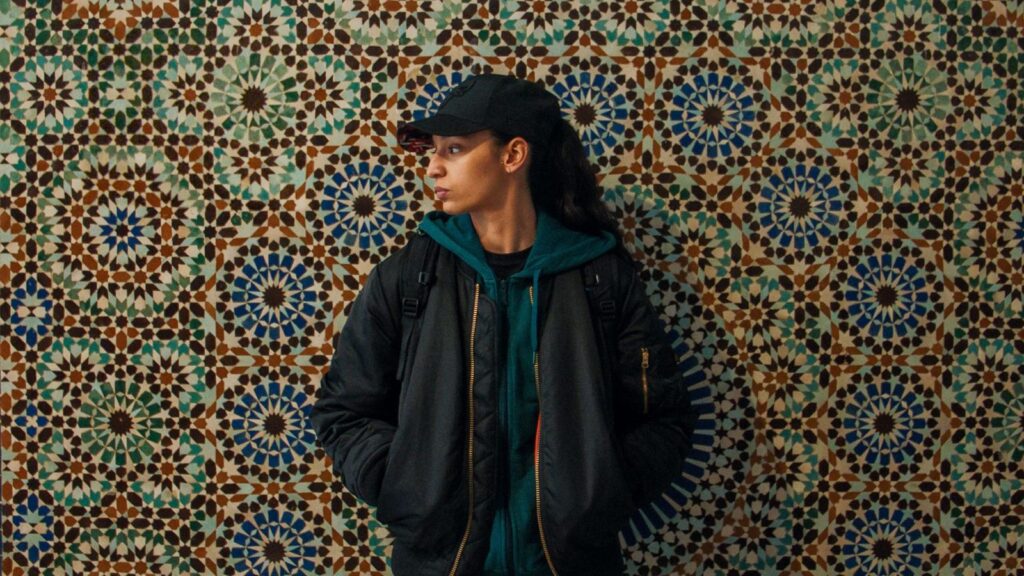Title: The Little Sister
Foreign Title: La Petite Dernière
Year: 2025
Country: France/Germany
Language: In French and Arabic with English subtitles
Director: Hafsia Herzi
Fatima, a young French Muslim woman, is on the verge of graduating high school and continuing her studies. She’s the youngest of three sisters. Though very pretty, she lacks the polished femininity of her older siblings, who, although loving and caring for her, teasingly mock her tomboyish, soccer-playing attitude and warn her she’ll never find a man that way.
Despite being a devoted Muslim, praying regularly and keeping her faith, Fatima’s life is not dictated by religion. As much as she is Muslim, she is also French and Algerian. Her family is affectionate and open, far from the isolated portrayals often seen in similar stories. Fatima does well at school, both academically and socially. She even has a secret boyfriend, who, after getting a better job, hints that he may soon ask for her hand. Fatima agrees, but it’s clear she’s not truly thrilled by the idea and this is when the film starts moving into the next phase.
After passing her exams, Fatima begins exploring a matchmaking app, where she, and we with her, start to realize she may be gay. Tentatively at first, she ventures into the world of online dating. During a routine medical visit for her asthma, she meets Ji Na, a Korean nurse, and falls in love. From then on, we follow Fatima through her emotional discoveries, enjoying the freedom of being herself for the first time, followed by heartbreaks: the euphoria of first love, the pain of rejection, and the complex negotiations between desire, faith, and identity.
Her journey is tender and intimate. We’re there when she tries to reconcile with her ex-boyfriend, when she confides in a kind but conservative Imam, realizing the borders of the religious institutes, and when she reconnects with Ji Na—this time more mature, cautious, and self-aware. The final scene, where her mother gently offers her a football shirt with her name on it, is quietly powerful. Fatima doesn’t reveal her secret, her mother’s gentle gestures offering help are heart breaking, as we realize that for Fatima the journey is still very long and lonely.
Yet this touching moment also exposes what the film lacks. Once Fatima begins to understand her sexuality, her friends and family nearly disappear from the narrative. Her moral and theological conflicts are brushed aside for most of the film. Nights of drinking and solitude replace the once-vivid social world we saw at the beginning. When the film closes with a long shot of Fatima playing soccer alone, her isolation finally hits us.
Based on the auto fictional novel by Fatima Daas, The Little Sister is less a story about coming out than about coming of age. Directed with delicacy and sensuality by Hafsia Herzi and beautifully performed by Nadia Milliti, the film may lack depth in parts, but it’s full of moments of warmth, humor, and quiet grace. A tender and heartfelt film—definitely worth watching.




